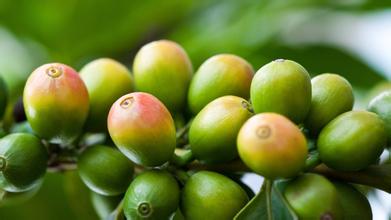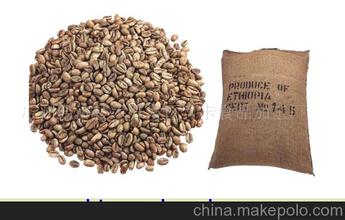Introduction to the taste varieties of Brazilian coffee beans produced by regional treatment
Including all coffee beans grown in Brazil, except for Sanduo Division, Brazilian beans are mostly "cheap" coffee. Mixed coffee beans that can be used for mass production, mostly for heavy roasting. The main ingredient of instant coffee is Brazilian coffee beans. When the coffee bean germ is very fresh, it is artificially refined and allowed to dry naturally in the shade room for about 60-70 days, so that the sweetness of the pulp fully penetrates into the bean. Features: coffee beans large aroma, moderate bitterness, also has a high texture of sour, overall taste soft, low acidity, careful taste endless aftertaste. Brazilian coffee taste with a low acidity, with the sweet and bitter taste of coffee, the entrance is extremely smooth, but also with a touch of grass aroma, in the fragrance slightly bitter, sweet smooth mouth, aftertaste can make people comfortable and carefree. There are no outstanding advantages to Brazilian coffee, but there are no obvious disadvantages. This taste is mild and smooth, low in acidity and moderate in alcohol.
Coffee was introduced into Brazil after the 18th century. In 1727, coffee was introduced into Belém Port of Brazil from Guyana. Since then, it has settled in Brazil, mainly distributed in the southeast coastal areas of Brazil, namely Sao Paulo, Barana, Santo Espírito and Minas Gerais. From the late 18th century to the 1920s, Brazil's coffee production was at its peak, accounting for 75% of the world's total coffee production. Over the longer term, coffee exports accounted for two thirds of Brazil's total export earnings, making Brazil a well-deserved "coffee kingdom." The economic crisis that broke out in 1929 caused a sharp drop in world coffee consumption and dealt a heavy blow to Brazil's coffee economy.
Since then, the share of Brazilian coffee production in export earnings has plummeted. In the past 30 years, with the rise and development of Brazil's modern industry, especially steel, shipbuilding, automobile, aircraft manufacturing and other industries, coffee's position in the national economy has declined year by year, but it is still one of Brazil's economic pillars, and Brazil is still the world's largest coffee producer and exporter.

Important Notice :
前街咖啡 FrontStreet Coffee has moved to new addredd:
FrontStreet Coffee Address: 315,Donghua East Road,GuangZhou
Tel:020 38364473
- Prev

Introduction to the fragrant and authentic Salvadoran coffee bean grinding scale treatment method
Coffee from El Salvador is a specialty of Central America, where it is light, fragrant, pure and slightly sour. Like Guatemala and Costa Rica, coffee in El Salvador is graded according to altitude, and the higher the altitude, the better the coffee. The best brand is Pipil, which is what the Azbec AztecMayan called coffee, and it has been acquired.
- Next

Characteristics of coffee beans in Kenya introduction of taste manor varieties by regional treatment
The Kenyan government takes the coffee industry very seriously, where it is illegal to cut down or destroy coffee trees. Kenyan coffee buyers are world-class high-quality coffee buyers, and no other country can grow, produce and sell coffee on a continuous basis like Kenya. All the coffee beans were first acquired by the Kenya Coffee Commission (CoffeeBoardofKenya, CBK).
Related
- Detailed explanation of Jadeite planting Land in Panamanian Jadeite Manor introduction to the grading system of Jadeite competitive bidding, Red bid, Green bid and Rose Summer
- Story of Coffee planting in Brenka region of Costa Rica Stonehenge Manor anaerobic heavy honey treatment of flavor mouth
- What's on the barrel of Blue Mountain Coffee beans?
- Can American coffee also pull flowers? How to use hot American style to pull out a good-looking pattern?
- Can you make a cold extract with coffee beans? What is the right proportion for cold-extracted coffee formula?
- Indonesian PWN Gold Mandrine Coffee Origin Features Flavor How to Chong? Mandolin coffee is American.
- A brief introduction to the flavor characteristics of Brazilian yellow bourbon coffee beans
- What is the effect of different water quality on the flavor of cold-extracted coffee? What kind of water is best for brewing coffee?
- Why do you think of Rose Summer whenever you mention Panamanian coffee?
- Introduction to the characteristics of authentic blue mountain coffee bean producing areas? What is the CIB Coffee Authority in Jamaica?

